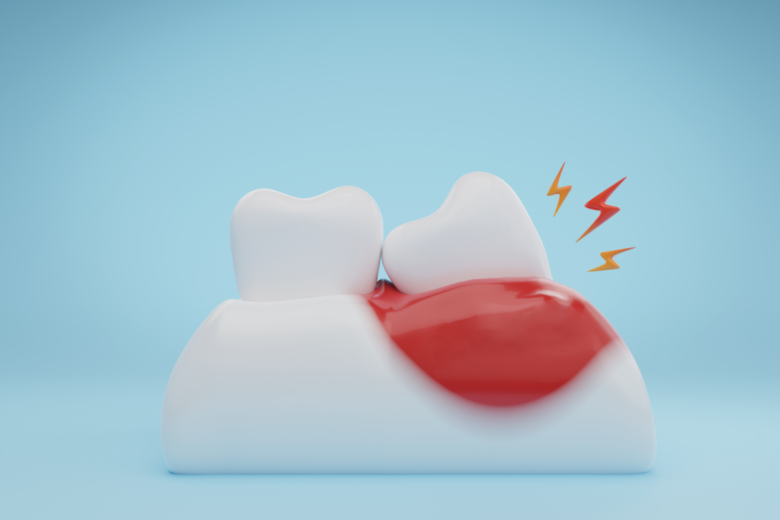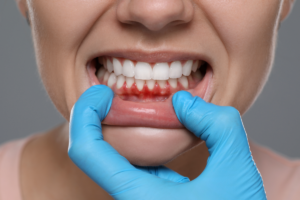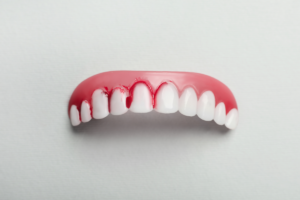Orthodontic treatment isn’t just about achieving a picture-perfect smile. It’s a game-changer for oral health, particularly when it comes to preventing gum problems. Curious how braces and aligners can do more than straighten teeth? Let’s dive in!
Understanding Orthodontic Treatment
Definition of Orthodontic Treatment
Orthodontic treatment refers to the practice of correcting teeth and jaw alignment. It’s not just a cosmetic fix; it’s about improving function and health.
The Basics of Orthodontics
Orthodontics focuses on diagnosing, preventing, and correcting misaligned teeth and jaws. Devices like braces and aligners are common tools.
Common Devices Used
Traditional braces, clear aligners like Invisalign, and retainers are all part of the orthodontic toolkit.
How Orthodontics Affects Oral Health
Impact on Teeth Alignment
Straight teeth are easier to clean, reducing the risk of plaque build-up—a key culprit in gum disease.
Connection to Gum Health
Proper alignment minimizes spaces where bacteria can thrive, protecting gums from inflammation.
Common Gum Problems
Gingivitis
Gingivitis is the earliest stage of gum disease and often results from poor oral hygiene.
Early Signs and Symptoms
Look out for red, swollen gums that bleed easily when brushing.
How it Progresses Without Treatment
Unchecked gingivitis can lead to periodontitis, a more severe gum issue.
Periodontitis
This advanced gum disease damages the soft tissue and bone supporting teeth.
Long-Term Effects on Oral Health
Left untreated, periodontitis can cause tooth loss.
Risks to Overall Health
Gum disease is linked to heart disease and diabetes, making prevention even more critical.
Receding Gums
Receding gums expose tooth roots, making them sensitive and prone to decay.
Causes of Gum Recession
Misaligned teeth and aggressive brushing are common culprits.
Challenges in Treatment
Receding gums require specialized care and, in severe cases, surgical intervention.
How Orthodontic Treatment Prevents Gum Problems
Improved Dental Hygiene
Orthodontics makes maintaining oral hygiene a breeze.
Aligning Teeth for Better Cleaning
Straight teeth reduce hard-to-reach spots, making brushing and flossing more effective.
Reducing Hard-to-Reach Areas
By closing gaps and aligning teeth, you eliminate bacterial hiding places.
Reducing Gum Strain
Proper alignment prevents excessive stress on gums.
Even Distribution of Bite Pressure
Orthodontics ensures that biting forces are evenly distributed, reducing wear and tear on gums.
Protecting Gum Tissue from Excessive Force
Misaligned teeth can put undue pressure on gums, causing irritation.
Benefits of Orthodontic Treatment Beyond Gum Health
Enhanced Aesthetic Appeal
Orthodontics boosts your confidence and social life.
Boosting Self-Confidence
A straight smile can transform how you feel about yourself.
Promoting Better Social Interactions
Let’s face it—a confident smile is contagious.
Long-Term Cost Savings
Orthodontics is an investment in lifelong oral health.
Avoiding Expensive Gum Treatments
Preventing gum issues now means fewer costly procedures later.
Maintaining Overall Oral Health
Aligned teeth reduce the risk of other oral problems like cavities.
Types of Orthodontic Treatments
Braces
Traditional braces remain a reliable option.
Traditional Metal Braces
These are durable and effective for severe misalignment.
Clear Aligners
Aesthetic and comfortable, clear aligners like Invisalign are gaining popularity.
Retainers
Retainers help maintain alignment after treatment.
Maintaining Results
Wear retainers as directed to keep your teeth in place.
Different Types of Retainers
Choose from fixed or removable options based on your needs.




